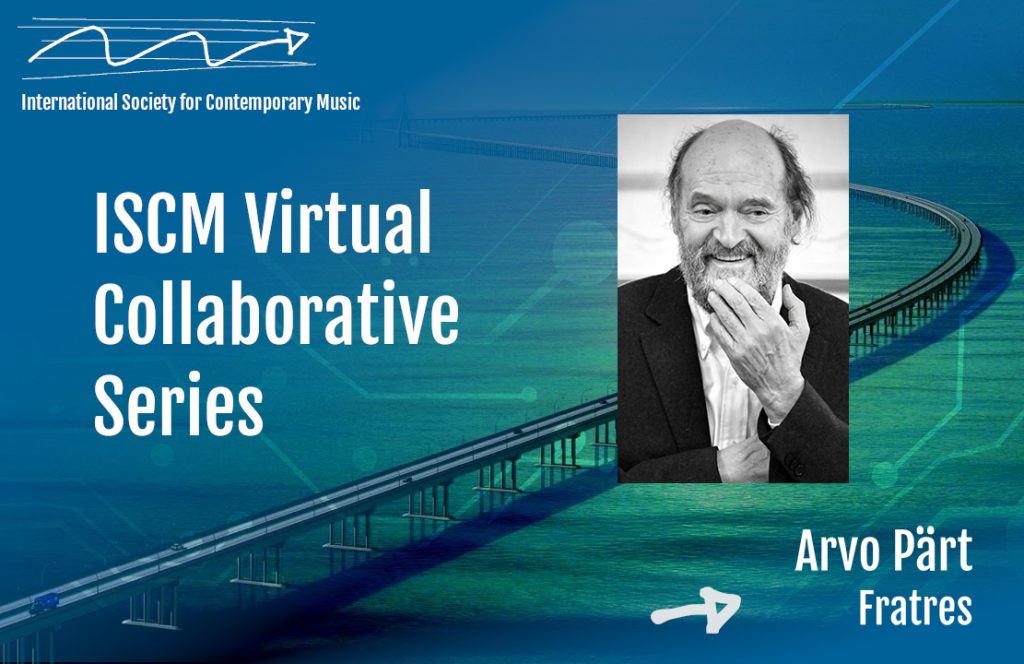Arvo Pärt: Fratres

Arvo Pärt (b. 1935) is one of those composers in the world whose creative output has significantly changed the way we understand the nature of music. In 1976, he created a unique musical language called tintinnabuli, that has reached a vast audience of listeners and that has defined his work right up to today. There is no compositional school that follows Pärt, nor does he teach; nevertheless, a large part of the contemporary music has been influenced by his tintinnabuli compositions. During the 2014 ISCM General Assembly in Wrocław, Poland, Arvo Pärt was elected an Honorary Member of the ISCM.
Fratres (Latin for “Brothers”) was composed in 1977 and belongs to the many works (Für Alina, Cantus, Tabula rasa etc.) that were created explosively after recognising the principles of tintinnabuli music. Fratres was initially composed as three-part music without fixed instrumentation that can be performed with various instruments. This is possible using the basic principle of the tintinnabuli technique, where the musical material does not necessarily have to be tied to the timbre of a specific instrument. Such a practice was also used in Medieval and Renaissance music which Pärt intensively explored before the birth of his tintinnabuli style. The recording featured below is from a performance that took place during the 2019 ISCM World New Music Days in Tallinn, Estonia.

ISCM
